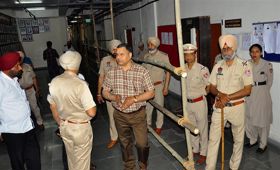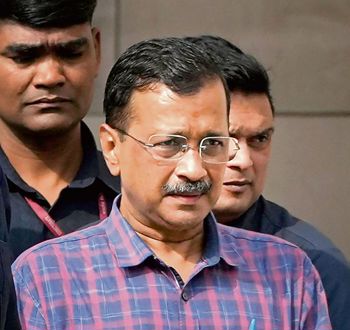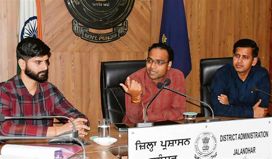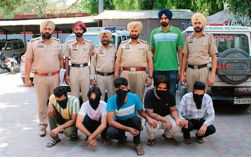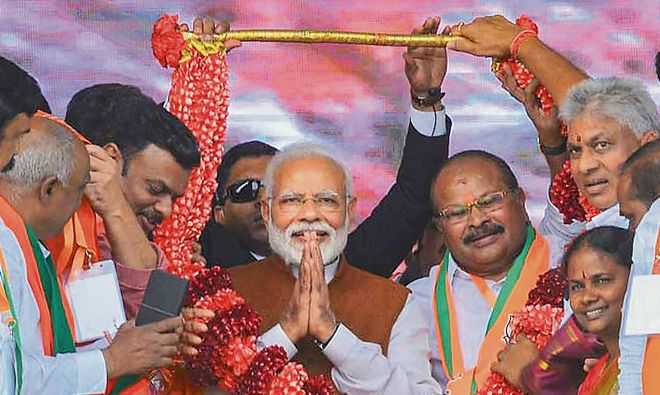
Spot on: The projection of Modi as a hard-as-nails leader struck a chord with the masses.
Rajesh Ramachandran
THE grand disconnect between the elite and the masses was never so complete, so dramatic and so antagonistic than in the just-concluded General Election. The elite sought a neo-liberal, soft, privileged, English-speaking leadership closely aligned to the West, whereas the masses bought into the campaign championing a strong, son-of-the-soil, Hindi-speaking, chest-thumping nationalist leader. It was indeed one of the worst polarising campaigns in India's electoral history, with the Congress-led Opposition trying to consolidate the Hindutva-weary minorities, while the BJP attempted a reverse polarisation. And the BJP, for the first time ever, succeeded in blending Hindutva slogans seamlessly with muscular nationalism, surpassing its own records set in 2014.
If Narendra Modi sought votes in the name of the Gujarat model in 2014, promising development and exposing the corruption of the earlier UPA government, this time around it was a no-holds-barred battle for Hindu nationalist pride. The projection of Modi as a hard-as-nails leader — who did not hesitate to cross the Line of Control to bomb a terror camp in Pakistan or send across a contingent of commandos to conduct a surgical strike in Pakistan-occupied Kashmir to avenge a terror attack sponsored by the inimical neighbour — was something that struck a chord with the masses, yearning for a strong leader.
After the Indira Gandhi era, the Congress had abandoned the national pride plank, particularly during the realignment of foreign and economic policies during the Narasimha Rao government. The coalition governments led by the Congress seemed weak in their response to terror attacks from Pakistan. The lasting memory of the Mumbai attack was the iconic Taj Mahal hotel going up in smoke and Ajmal Kasab roaming the streets, holding an automatic rifle in one hand, whereas the Pulwama terror attack ended with the image of a smouldering hilltop deep inside Pakistan. This difference was drummed up into war hysteria during the election campaign. The PM and his party used the Balakot aerial strike to the hilt and unabashedly sought votes in the name of the armed forces. Meanwhile, the Opposition floundered badly, asking for proof of the airstrike.
Like watching an India-Pak cricket match or an India-Pak war movie with Bollywood songs in it, the voters were vicariously enjoying the pleasure of having blown up a Pak terror camp deep inside enemy territory when the Opposition began punching holes into the script. This obviously backfired. The result is now for all to see in the Hindi heartland. The BSP-SP combination projecting Mayawati as Prime Minister obviously lent greater credibility to Modi's candidature. In the battle for UP, the non-Yadav OBCs have clearly voted against Mayawati, who is also a polarising personality so far as non-Jatav communities are concerned.
Along with Modi’s stupendous victory, these results could also be read as the Opposition’s stunning defeat in projecting a credible alternative. Rahul Gandhi was too late with his NYAY promise and even with it he could not match Modi's persona as an underprivileged patriot who had to work his way up to the PM’s Office. For a party that was accused of a series of corruption scandals through the decades and a pogrom in Delhi in 1984, the Congress plank seeking votes for peaceful coexistence of communities and against the Rafale scandal did not work.
It is not easy for a former ruling party, which had battled corruption charges and with a lot of skeletons in its cupboard, to suddenly spring a surprise at the incumbent. Even the BJP in 2011 had piggybacked on the Anna Hazare movement against corruption to turn the tide against UPA-II. It was only after Hazare and Arvind Kejriwal prepared the ground against UPA-II that the BJP could whip up a nationwide campaign over the 2G scandal. It took the then Opposition about three years to create a national mood that ended in the Congress rout in 2014. But Rahul spent hardly three months campaigning during the General Election, without bothering to meet opinion-makers or party-workers, remaining firmly ensconced within a coterie of sycophants. He is supposed to have alienated even his smartest aide, who created the self-help groups of women in Amethi, which to a great extent explains his defeat as a candidate.
Compare Rahul with Jaganmohan Reddy, the leader of the YSR Congress, which has swept Andhra Pradesh. He, too, is an inheritor like Rahul, but unlike Rahul he did not call AP Chief Minister a chor and was on the road for about two years campaigning relentlessly, to connect with the masses — to get closer to them, talk to them and to shed the image of an inheritor. In fact, the other dynasty that has fallen by the wayside is the Lalu Prasad Yadav family firm of Rashtriya Janata Dal, which had refused to offer a seat to firebrand JNU Left leader Kanhaiya Kumar.
This election also foretells the demise of the Indian Left. Ever since Independence, the Left parties have played a historic role in shaping the Indian consciousness. In just 15 years, the Left has declined from 60 to six seats, without a single seat in West Bengal, and Pinarayi Vijayan’s Kerala unit getting reduced to just one seat after trying to drive temple-going Hindu voters into the waiting arms of the BJP, miscalculating all of them to be Congress supporters. The way Vijayan handled the Sabarimala issue forced a lot of secular Hindus to abandon the Marxist party.
Indian general elections are always the sum total of many diverse battles fought at the local level. When Naveen Patnaik gets re-elected for the fifth time bucking the Modi wave with an impressive tally in Parliament, he is getting richly rewarded for turning a backward state around. While the Congress win in Punjab is Captain Amarinder Singh's achievement, the DMK sweep is a vote against the AIADMK government. But the final tally proves beyond all doubts that it is indeed Modi's victory, as does the surge in West Bengal where Marxist supporters sought the organisational protection of the BJP to take on the Mamata Banerjee government. End of the day, organisation matters the most.





















